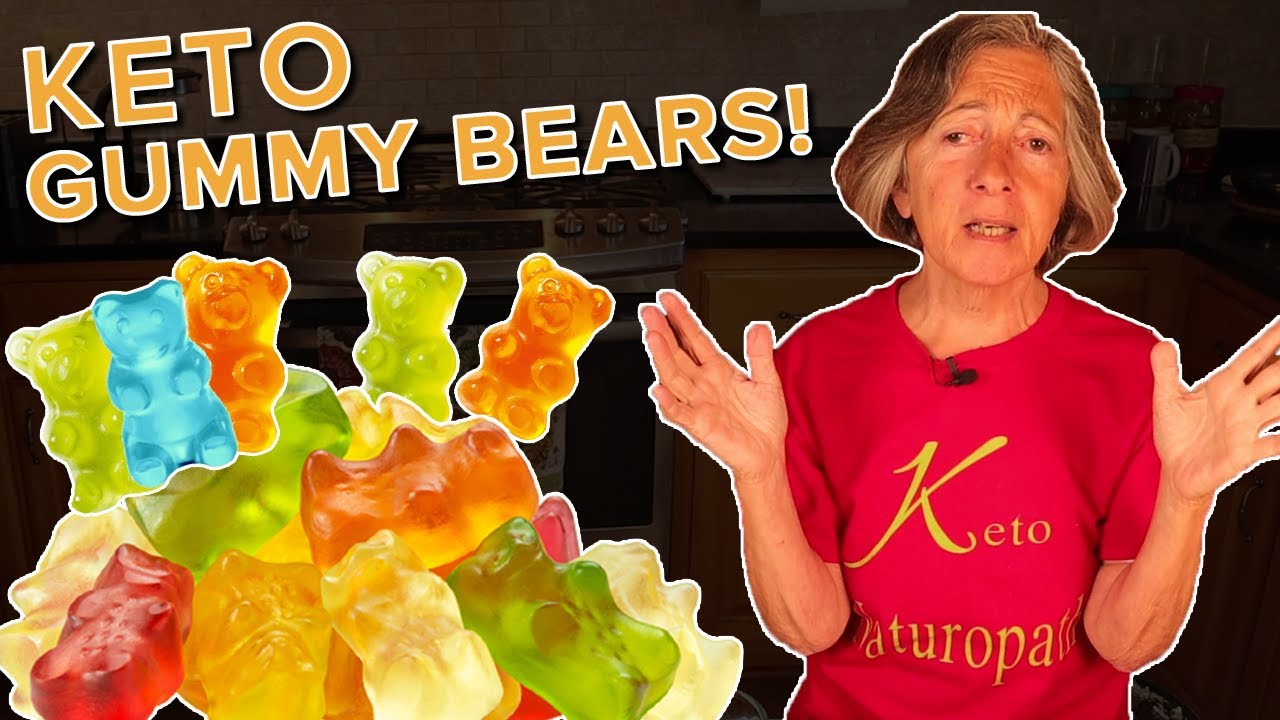Mastering Muscle Growth on the Keto Diet
The ketogenic diet, known for its low carbohydrate and high-fat approach, has garnered significant attention for its benefits in weight management and metabolic health. However, for those looking to build muscle, navigating the world of ketosis requires a thoughtful approach, especially regarding nutritional intake and supplementation. While many assume that protein intake alone is sufficient for muscle growth, incorporating the right supplements can enhance results significantly. Understanding how to build muscle effectively on a ketogenic diet involves recognizing the importance of maintaining energy levels, supporting recovery, and maximizing muscle synthesis while ensuring that the body remains in a state of ketosis.

Building muscle on keto involves more than just eating fat and limiting carbs. The body’s shift to utilizing ketones instead of glucose can alter metabolism and energy utilization. Therefore, supplements that support muscle growth can play a critical role in helping individuals achieve their fitness goals without sacrificing the benefits of a low-carb lifestyle. Essential nutrients such as protein, electrolytes, and specific amino acids become crucial, as they contribute to muscle recovery and synthesis. This dietary transition requires an understanding of both macronutrients and the strategic use of supplements.
This article will explore three essential supplements that individuals should consider incorporating into their ketogenic regimen to optimize muscle growth. From branched-chain amino acids (BCAAs) to protein powders tailored for a ketogenic diet and creatine, each supplement serves a unique purpose in fostering muscle recovery and growth. Understanding their mechanisms and benefits can empower those on a keto diet to maximize their strength training outcomes. Investing in the right supplements allows individuals to remain in ketosis while also ensuring that their bodies have the necessary tools for effective muscle growth and recovery.
Unlocking the Power of BCAAs
Branched-Chain Amino Acids (BCAAs) are crucial supplements for individuals aiming to build muscle while adhering to a ketogenic lifestyle. Comprising three essential amino acids—leucine, isoleucine, and valine—BCAAs play a significant role in muscle protein synthesis and recovery. While protein sources from animal products do provide BCAAs, taking them in supplemental form can enhance the benefits, especially during intense training sessions. When on a ketogenic diet, athletes may find it challenging to consume adequate protein without exceeding their carbohydrate threshold, making BCAAs a vital addition.
The primary function of BCAAs is to stimulate muscle protein synthesis. Leucine, in particular, has been shown to activate the mTOR pathway, which is the signaling pathway responsible for muscle growth. Supplementing with BCAAs can help mitigate muscle breakdown during workouts, especially in a calorie deficit common in individuals following a ketogenic diet. This is particularly beneficial for those who engage in strenuous exercise or resistance training and require extra support for muscle preservation and growth while in ketosis.
Furthermore, BCAAs can aid in reducing muscle soreness and accelerating recovery. This can be particularly advantageous for those transitioning to a ketogenic diet, as they may initially experience fatigue or changes in energy levels. Taking BCAAs before or after workouts can provide an immediate source of energy for the muscles, allowing athletes to maintain intensity during training. By incorporating BCAAs into their regimen, individuals can optimize their performance while ensuring that they remain in a fat-burning state.
Protein Powders Tailored for Ketogenic Diets
Protein powders can be a convenient and effective way to ensure adequate protein intake on a ketogenic diet, particularly for muscle building. However, not all protein powders are created equal, and choosing the right type is essential for those looking to maximize their muscle gains. Whey protein isolate is a popular option due to its high biological value and rapid absorption, promoting quick recovery post-workout. However, individuals on a strict ketogenic diet should also explore options like collagen peptides and egg white protein, which are low in carbohydrates and fats.
The benefits of incorporating protein powders extend beyond muscle repair and growth. Consuming a protein shake post-workout can help replenish glycogen stores without exceeding carbohydrate limits. While traditional protein sources can often be high in carbs, select protein powders designed for keto contain minimal or zero carbohydrates, making them an ideal choice for those looking to maintain ketosis. Furthermore, blending protein powder with healthy fats such as coconut oil or nut butters can create a satisfying meal replacement that further supports energy levels.
Moreover, protein powders can contribute to satiety, aiding in weight management. Staying on track with calorie intake can be challenging on a ketogenic diet, especially for individuals aiming to build muscle. By replacing higher-carb snacks with protein-rich shakes, individuals can effectively manage their appetite while ensuring their bodies receive enough protein to support muscle growth. The versatility of protein powders allows for a wide array of recipes, making them an enjoyable component of a ketogenic lifestyle.
Maximizing Gains with Creatine
Creatine is often hailed as one of the most effective supplements for increasing muscle mass and improving athletic performance. This compound, primarily found in red meats and fish, is stored in the muscles and used during high-intensity exercise. For individuals on a ketogenic diet, creatine can provide significant benefits despite the typical lower carbohydrate intake that often accompanies this eating plan. Supplementing with creatine can maximize the body’s ability to perform at peak levels during workouts, ultimately leading to greater muscle growth.
One of the primary benefits of creatine is its ability to enhance energy production in the muscles. During high-intensity exercise, ATP (adenosine triphosphate) becomes the main energy source. Creatine supplementation increases the phosphocreatine stores in muscles, allowing for quicker ATP regeneration. This effect translates into improved strength, endurance, and overall performance. For those looking to build muscle on keto, creatine can facilitate more intense workouts and promote more significant muscle stress, which is essential for growth.
Additionally, creatine aids in muscle recovery and the reduction of muscle soreness post-workout. Individuals on a keto diet may experience changes in muscle recovery dynamics due to decreased carbohydrate availability, making creatine an essential supplement to include in their routine. By helping to replenish energy levels and enhance recovery, creatine supports the overall goal of muscle hypertrophy, making it a valuable addition to any ketogenic diet focused on strength training.
The Role of Electrolytes in Muscle Performance
Electrolytes are minerals that carry an electric charge and are vital for numerous bodily functions, including muscle contraction and hydration. When following a ketogenic diet, the reduction in carbohydrate intake can lead to electrolyte imbalances, primarily during the initial stages of adaptation. This is crucial for those looking to build muscle, as electrolyte balance directly influences performance, recovery, and overall health. Supplementing with key electrolytes such as sodium, potassium, magnesium, and calcium can effectively support muscle function and overall well-being during ketosis.
One of the most common issues individuals face on a keto diet is the “keto flu,” where symptoms of fatigue, headache, and muscle cramps can arise due to inadequate electrolyte levels. Sodium is essential for fluid balance and muscle contraction, making it particularly important for athletes. Ensuring adequate sodium intake helps promote hydration and can improve workout performance, preventing cramping and fatigue during high-intensity training sessions.

Likewise, potassium and magnesium play essential roles in muscle recovery and function. Potassium regulates fluid balance and helps to prevent muscle cramps, while magnesium supports energy production and reduces fatigue. Incorporating an electrolyte supplement can enhance performance during workouts and support recovery, ensuring that the body has the necessary minerals to function optimally on a ketogenic diet. Staying mindful of electrolyte intake supports muscle growth and overall health, allowing individuals to achieve greater results in their fitness journeys.
Common Questions and Answers on Building Muscle on Keto
As individuals explore their options for building muscle on a ketogenic diet, numerous questions often arise regarding the effectiveness of supplements, meal planning, and nutrient timing. Understanding these nuances is crucial for optimizing muscle growth and ensuring that the keto lifestyle aligns with fitness goals. One common question is whether it is possible to build muscle on a ketogenic diet. Yes, it is entirely feasible, provided individuals focus on adequate protein intake, the right supplements, and consistent strength training. Proper nutrient timing, such as consuming protein-rich meals or shakes post-workout, can also significantly influence muscle recovery and growth.
Another frequent inquiry revolves around the necessity of supplements on a ketogenic diet. While whole foods should be the primary source of nutrients, supplements can help fill in any gaps, particularly for those struggling to meet their macronutrient targets or for those who may need additional support through intense workout regimens. Branched-chain amino acids, protein powders, and creatine are valuable options for enhancing muscle growth and performance, especially when dietary restrictions may limit nutrient availability.
Lastly, individuals often question how to combine supplements effectively. Creating a supplement routine personalized to one’s training schedule, dietary preferences, and unique goals is vital. For example, taking BCAAs before a workout can provide endurance, while protein powder can ensure recovery and muscle repair post-exercise. Time your creatine intake around training sessions for optimal energy and performance. Ultimately, carefully planning how to integrate these supplements into a ketogenic lifestyle can enhance muscle-building efforts and support overall fitness goals.


